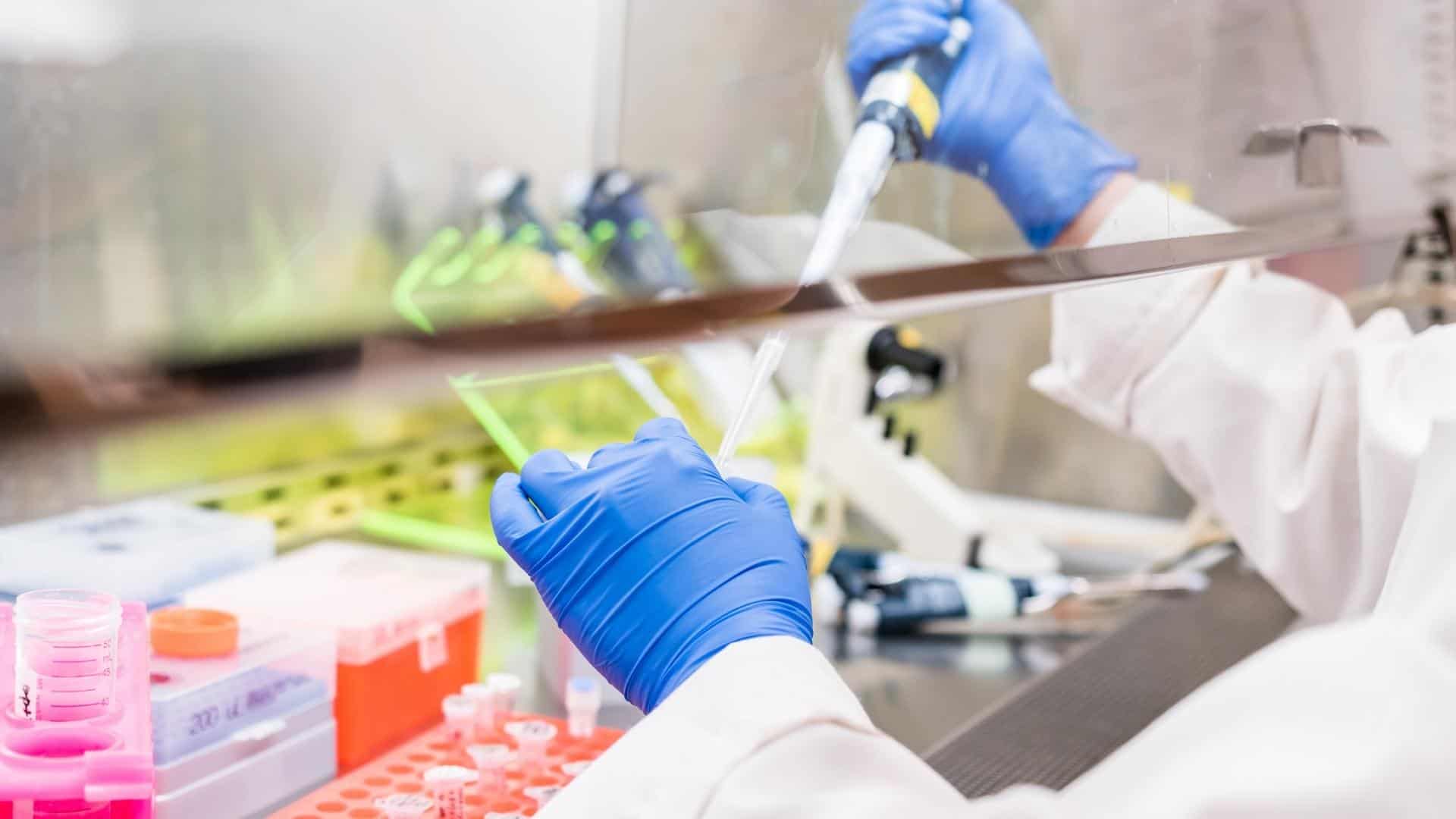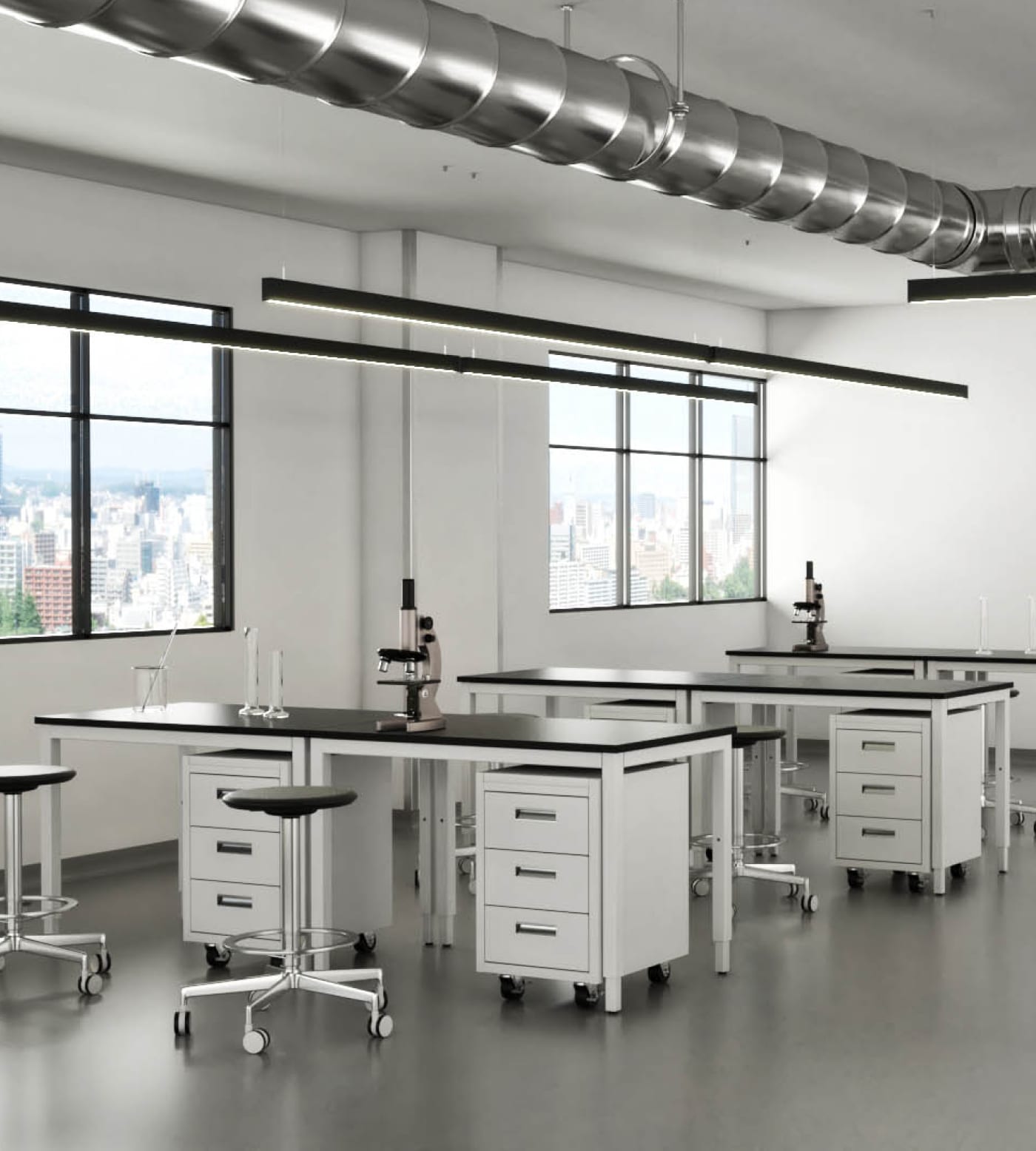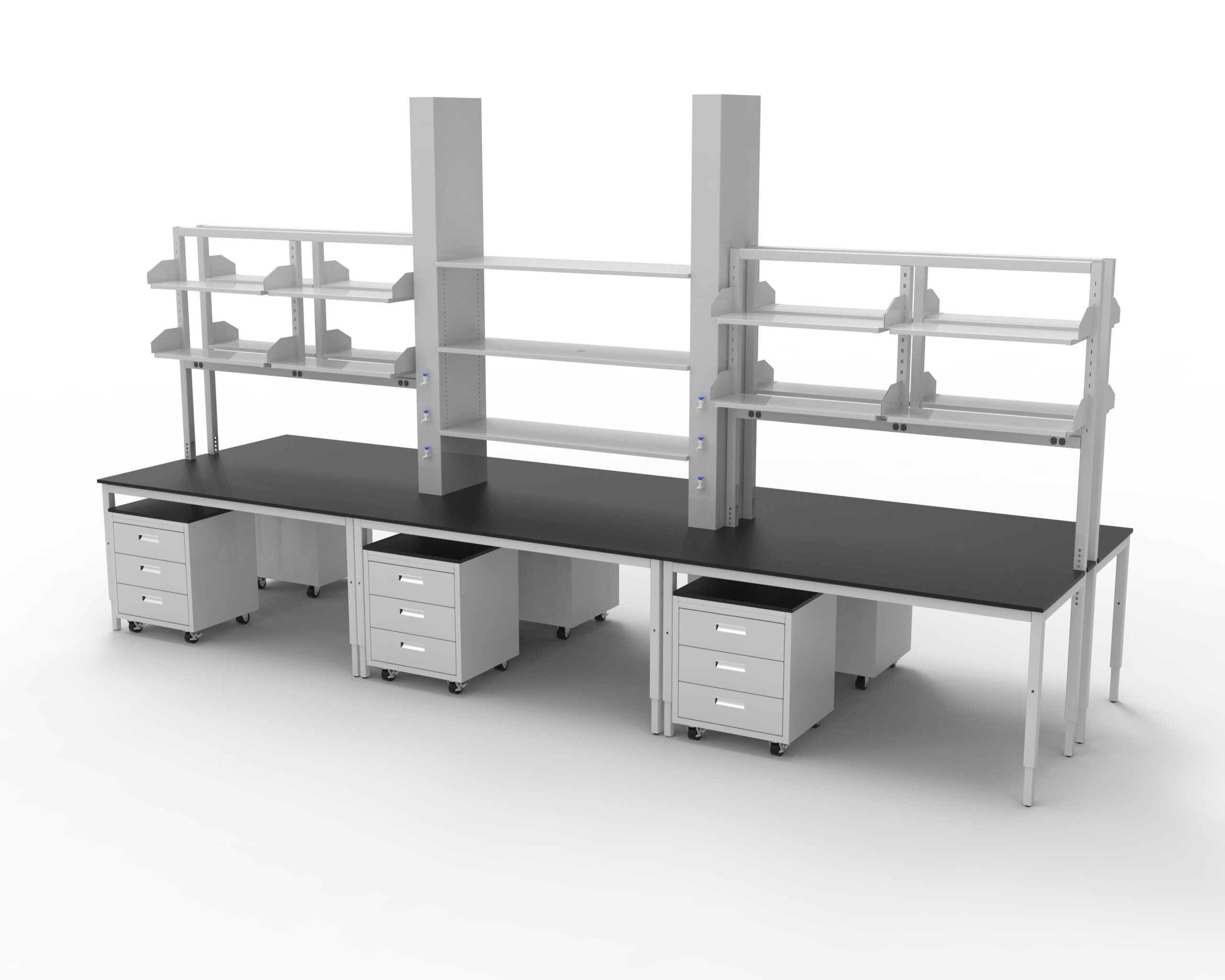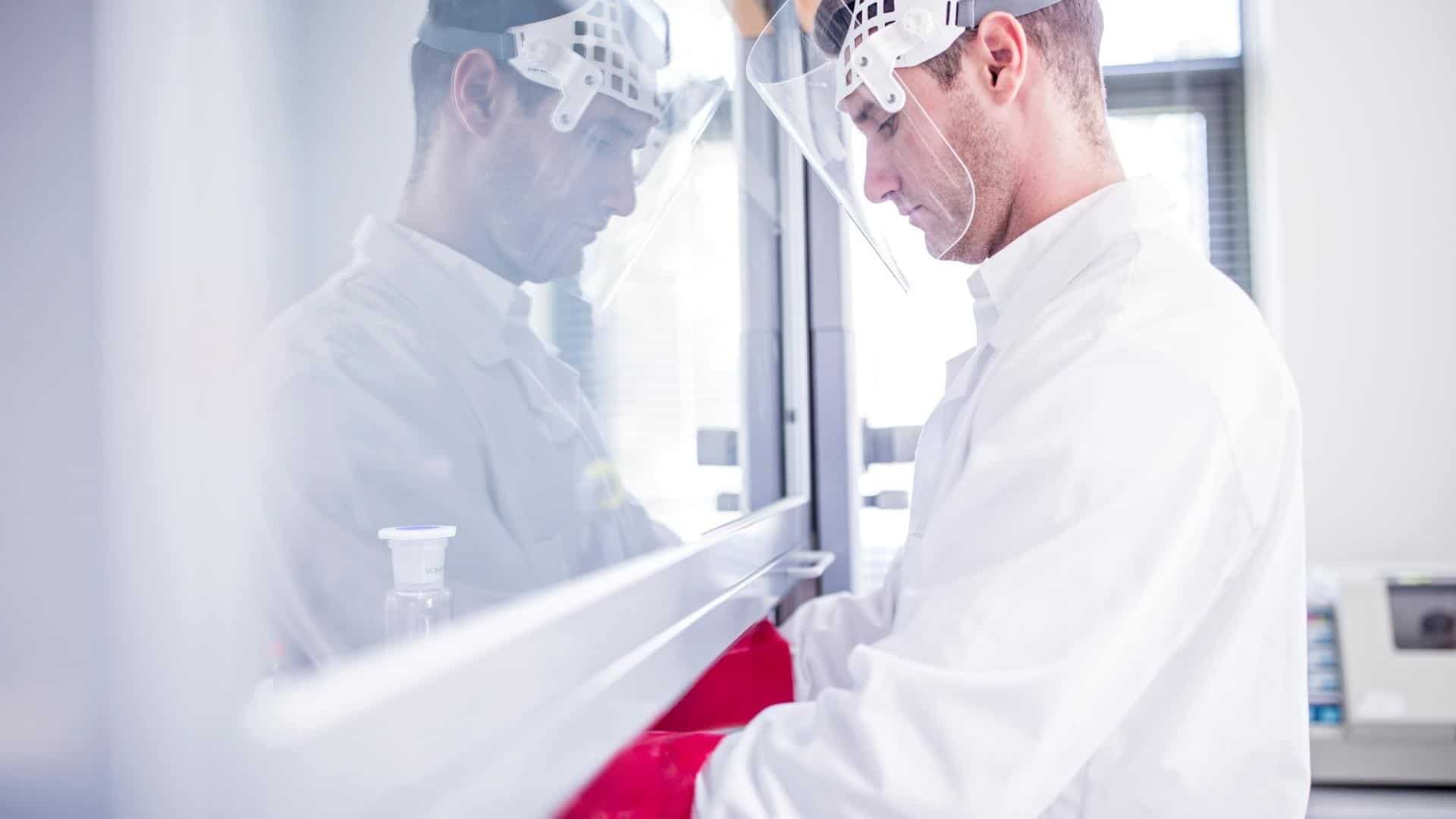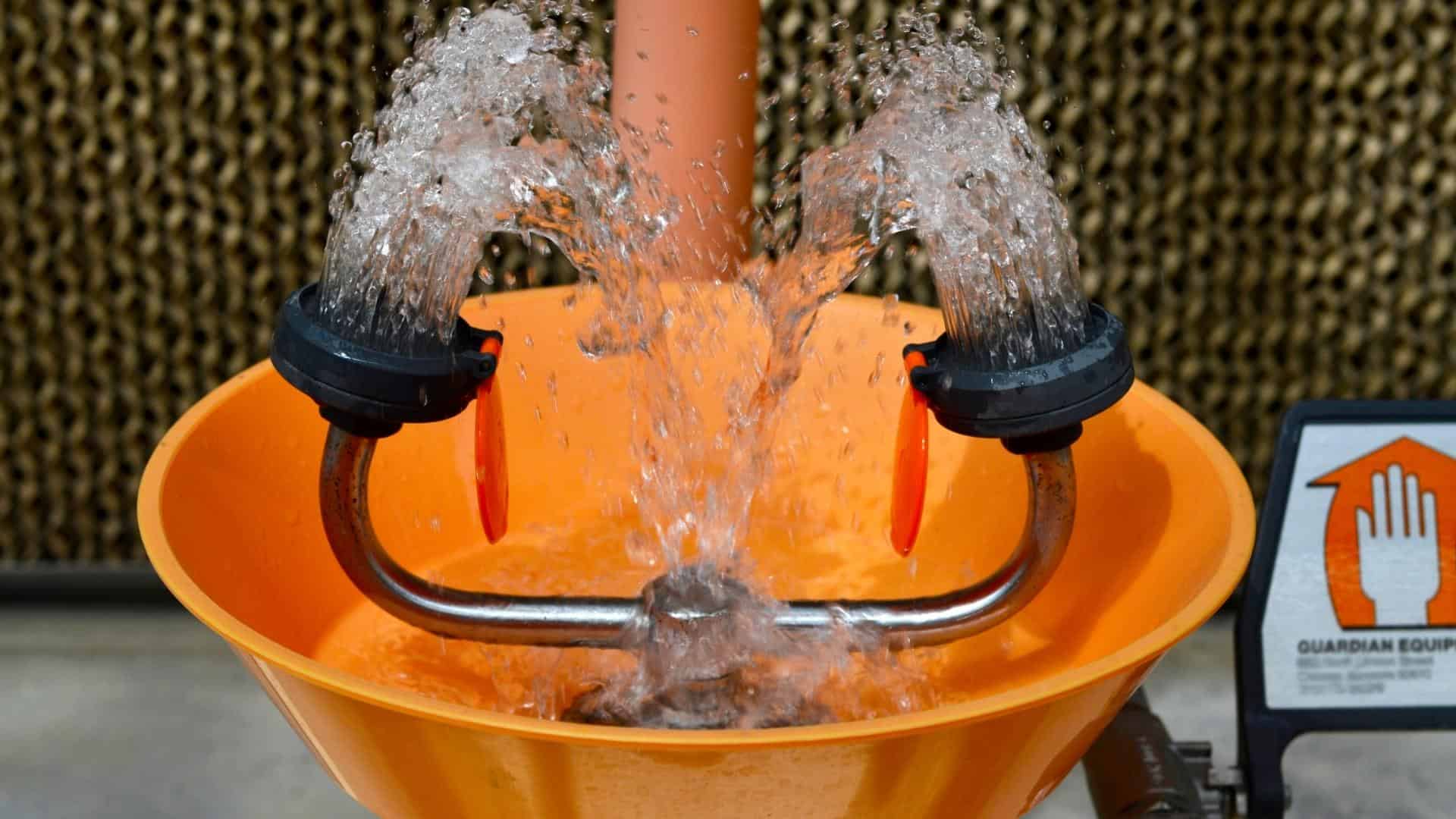Proper Storage of Laboratory Chemicals
Short answer: no. Chemicals should never be stored in a fume hood. Fume hoods serve a specific purpose in laboratories and educational settings, and storing chemicals inside can lead to extremely dangerous, entirely preventable consequences. Learn about proper fume hood use and chemical storage options to ensure you are using your fume hood correctly.
Why You Should Never Store Chemicals in a Fume Hood
There are many equipment- and personnel-related reasons why chemicals should not be stored in a fume hood:
- Obstructed airflow: Too many objects in a laboratory fume hood can obstruct airflow. The main function of a fume hood is to expel and purify contaminated air. Unnecessary objects, chemicals, or equipment increase the risk of blocking proper airflow, increasing the likelihood of a hazardous situation.
- Poor use of expensive, specialty equipment: Fume hoods are expensive and specialized pieces of equipment compared to chemical storage cabinets. Chemical storage cabinets, which are constructed for the purpose of housing specific chemicals, cost much less than a complex fume hood. It does not make sense to leave corrosive or damaging materials in a fume hood when there is a high chance of a chemical-induced incident.
- Lack of necessary safety features: Fume hoods may not be equipped to handle the specific chemicals that need to be stored. Chemicals are extremely specific in the way they need to be stored. Hydrogen peroxide, for example, is a corrosive substance, requiring storage containers to be made of a particular anti-corrosion material.
- Potential to mix hazardous chemicals: Storing chemicals in fume hoods may encourage people to store chemicals together that should always be kept separate. The reactive nature of chemical properties means all materials need correct storage to prevent damaging accidents.
- Potential for interactions with chemical processes: Chemicals stored in a fume hood could interact with other chemicals being used for experiments or processes when the fume hood is in use. Certain chemical interactions can be dangerous, whether leading to a fire, explosion, or other toxic reaction. Improper storage of chemicals puts the user in harm’s way, and is always avoidable.
What Is a Fume Hood Used for?
A fume hood is used for exhausting hazardous chemicals during research and experimentation. Ducted fume hoods connect to existing ductwork and release the unwanted, diluted gases outside of the laboratory area. Ductless fume hoods are filtered and recirculate the previously-polluted air after pulling toxins out. This process provides safety to those in the immediate area.
Regardless of whether you are using ducted or ductless models, the chemicals used for experimentation should never be stored in a fume hood.
Can You Store Chemicals in a Walk-in Fume Hood?
Walk-in fume hoods, also known as floor mounted fume hoods, are not to be used for chemical storage, regardless of their larger size. When chemicals are stored in fume hoods, there are a plethora of issues that can occur, including spills and explosions.
Contrary to their name, these fume hoods are not safe to be entered at all and should only be used in a manner that keeps the user protected by remaining on the outside of the fume hood.
How to Store Chemicals Safely
Chemicals should always be stored in a chemical storage cabinet. There are a few types of cabinets to choose from depending on which chemicals require storage.
Types of Chemical Storage Cabinets
- Acid & corrosive cabinets: This heavy-duty container is essential in preventing fires, leaks, and exposure to dangerous fumes that can wreak havoc on organic tissues. Made of strong polyethylene, these cabinets should be placed under a fume hood, as acids and corrosive materials can emit toxic fumes.
- Flammable cabinets: Designed to prevent and extinguish fire, flammable cabinets should house any liquid materials prone to combustion, like acetone or petroleum. These storage containers can be placed under a fume hood, but most importantly, they must not block exits or be improperly sealed.
- Biosafety cabinets: Biosafety cabinets house potentially harmful biological samples while providing separation and protection to the user, environment, and surrounding product.
Chemical Fume Hood vs. Biological Safety Cabinet: What’s the Difference?
Fume hoods and biosafety cabinets appear visually similar, but do have distinct differences when it comes to functions. Incorrect equipment usage can be extremely dangerous, so it is of utmost importance to fully understand what properly suits your lab needs.
While a fume hood dispels toxic gases through a vent or filtration system, a biosafety cabinet has high-efficiency particulate air (HEPA) filters, ensuring the user is protected against harmful pathogens.
There are three classes of biological safety cabinets, implemented depending on the materials. Class I involves air being diverted from the user and the work surface. Class II requires a downward flow of sterile air onto the station while exhaust air is filtered and released. Class III cabinets are gas-tight; intake and exhaust air progresses through HEPA filtration.
Laboratory Storage Products
At iQ Labs, we offer products to meet a wide variety of laboratory storage needs, including:
- Acid & corrosive cabinets: Ensure your materials are properly stored with specialized, chemical-specific cabinetry.
- Flammable cabinets: This durable storage option greatly decreases the risk of fire-related incidents.
- Laboratory corner and base cabinets: Scratch-proof rolled steel cabinets provide a long-lasting solution to lab organization and storage needs.
- Laboratory wall cases with shelves: Our customizable height options will fit whatever existing setup you have or can be used to construct a new lab.
- Laboratory standing storage cabinet: These heavy-duty cabinets are great for vertical storage needs and come equipped with either steel or glass doors.
Get High-quality Laboratory Storage Solutions
We are happy to discuss what proper laboratory storage solutions fit your needs best, keeping your laboratory staff or students safe. Contact us today to get started.
